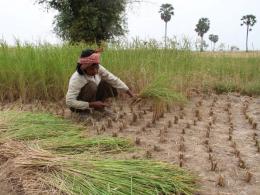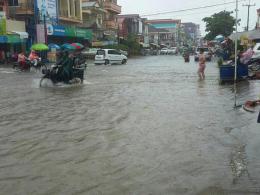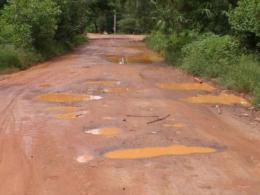Demonstration of RECP, EMS and GHG mitigation and adaptation in industrial and handicraft sectors
Background
Industry and handicraft are vulnerable to climate change and extreme weather. Current climate trends indicate that the impacts are already experienced by the sector from extreme weather events or other climate-induced phenomena, making it harder for the sector to grow in the new climate regime. On the other hand, industry and handicraft sectors contribute to climate change. The recent Cambodia Second National Communication (2015) calculated the greenhouse gas emission in the country for the year 2000 and found that Industrial Processes had zero emission (negligible number) and Manufacturing Industries and Construction represented about 15% of emissions in the Energy sector. However, GHG emission from industrial processes and manufacturing are expected to have increased significantly since 2000, and there is a lot of scope to improve current practices.
Overall Objective
Strengthen Government and industry sector capacity and awareness of low-carbon planning and technologies.
Expected Results
Development of National GHG inventory in Industrial Processes and Product Use (IPPU)
RECP and EMS implemented in the demonstration companies
Capacity building and awareness raising
Location
Phnom Penh, Battambang, Kampong Speu, and Kandal
Approach
The development of a National GHG Inventory in Industrial Processes and Product use will require technical inputs from Department of Climate Change, Ministry of Environment, who is the national focal point connected to the UNFCCC on Cambodia’s GHG emission. The Result 1 will adopt the 2006 IPCC’s methodology on National GHG Inventory in Industrial Processes and Product Use (IPPU).
The proposed demonstrations of best practices on available technology and environment for contribution to climate change adaptation and mitigation in industrial and handicraft sectors will improve the knowledge, know-how of local industry and SMEs to change their behaviors, management, manufacturing technology, and products so that in the future this sector will be more competitive and innovative including use of renewable energy, such as solar, sustainable solid biomass fuels and biogas. Specific awareness-raising initiatives will be conducted based on these concrete examples.






